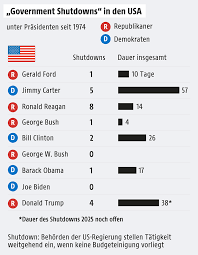
Introduction: What is a US Government Shutdown?
The concept of a government shutdown in the United States refers to a situation where the federal government ceases operations due to the lack of approved funding from Congress. This phenomenon is crucial not only for the functioning of government agencies but also for the lives of millions of Americans who rely on government services, programmes, and jobs. With the looming possibility of shutdowns becoming more frequent in recent years, understanding their implications has never been more vital.
Recent Events: The 2023 Government Shutdown
As of October 2023, the US Congress faced significant negotiations concerning spending bills, with disagreements primarily between the Republicans and Democrats. Following intense discussions, the threat of a government shutdown surged as both parties struggled to reach a consensus on key issues like the budget for federal agencies, public health programmes, and military funding. Ultimately, legislators averted a shutdown by passing a stopgap funding bill, allowing government operations to continue until early December 2023.
The Impact of Government Shutdowns
When these shutdowns occur, a wide array of government services come to a halt. Federal employees are often furloughed, resulting in no pay until the shutdown is resolved. Notably, national parks, museums, and various public services also close their doors, greatly affecting citizens and visitors alike. Economic repercussions include delayed government contracts and potential dampening of consumer confidence. According to a report by the Congressional Budget Office, the 2018-2019 shutdown significantly impacted the economy, costing the U.S. government approximately $11 billion.
Public Perception and Political Consequences
The public sentiment towards government shutdowns tends to be overwhelmingly negative. Many Americans express frustration at lawmakers for failing to reach agreements that keep the government running smoothly. Political leaders often bear the brunt of this discontent, facing consequences during elections. A survey by Gallup indicated that, during the last government shutdown, only 31% of respondents approved of Congress’s handling of the budget negotiations, illustrating the importance of effective governance.
Conclusion: Future Implications
As political divisions continue to widen within the US Congress, the risk of government shutdowns remains high. Observers suggest that ongoing partisan conflict over spending priorities may lead to further shutdowns, which can have long-lasting ramifications on public trust and government credibility. Moving forward, it will be imperative for lawmakers to find common ground to avert potential disruptions in government operations. Understanding and effectively addressing the reasons behind these shutdowns will be critical to ensure stability for both the government and the nation’s citizens.
You may also like

Understanding the Current Political Landscape in the UK

The UKIP Party: Recent Developments and Future Outlook
